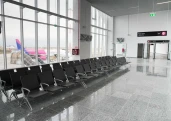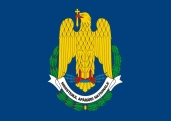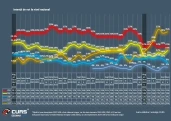The National Union of Road Carriers in Romania welcomes the political agreement reached regarding the expansion of the Schengen Zone with Romania and Bulgaria in what concerns the air and sea borders as of March 2024, but demands the Romanian and European authorities to establish a clear date for the same expansion of Schengen when it comes to land borders too, starting with 2024.
"The accession to the Schengen Zone is an important and long-awaited step by Romanian passengers and transport operators, which had to be achieved since 2011, when the European institutions found that Romania met all the technical criteria for Schengen accession. Given that all passenger data are at the disposal of air transport operators, the expansion of the Schengen Zone with Romania in what concerns the air borders could have been achieved a long time ago. It is obvious that the delay has absolutely no justification of a technical nature, and is only a political one, the members of the EU club have chosen to punish Romania and Bulgaria and reduce their competitiveness during all this time, and their development potential. Now, however, Romania's entry into the Schengen Zone with its land borders is an emergency for road freight carriers whose efficiency is currently severely penalized by the extremely long waiting times (about 30-36 hours daily between Romania and Bulgaria) and for coach operators, to avoid the significant administrative burden related to the new obligations to verify passenger data in the European travel authorization systems EES and ETIAS in the future," stated the secretary general of UNTRR, Radu Dinescu, according to a press release of the organization sent to AGERPRES on Thursday.
According to the same source, the Entry/Exit System (EES) targets non-EU passengers who need a single or double entry visa to enter the Schengen Zone, while the European Travel Information and Authorization System (ETIAS) ensures verification of non-EU passengers who are exempt from the obligation to have a visa for the intended stay on the territory of the member states, Agerpres informs.
"In the case of Romania - EU country, but non-Schengen, the application of ETIAS and EES obligations will generate a significant administrative burden for Romanian passenger transport operators. Romania, through its strategic position, plays an essential role in ensuring the efficiency and cohesion of road transport at European level. However, Romania's absence from the Schengen Zone creates administrative and logistical barriers, directly affecting the road transport industry and generating significant costs for the Romanian operators," claim the transporters.
According to this year's UNTRR analysis on the impact of non-adherence to Schengen from the perspective of road freight transport, the road transport industry has losses of 2.41 billion euros.
UNTRR representatives point out that the road transport industry, Romania's largest exporter of services with 7.66 billion euros in 2022, is the economic branch most affected by the fact that Romania is not in Schengen.
































Comentează